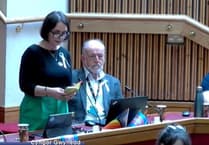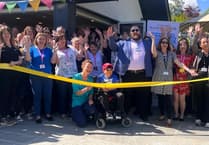A decision to delay signing off on the closure of Caernarfon and Welshpool Air Ambulance bases has been welcomed.
A recommendation to close those bases has been put to seven health boards. Four have refused to accept the recommendation and have asked for more time to consider the proposal.
There are fears people will die if these bases are lost and campaigners have fought to retain them.
Commenting on the news of the delay, Dwyfor Meirionnydd MP Liz Saville Roberts and MS Mabon ap Gwynfor said: “The decision to delay signing off the closure of the Caernarfon and Welshpool Air Ambulance bases is to be welcomed and reflects the overwhelming sentiment from within our communities who view this whole process with extreme anxiety.
“The fact that four of Wales’ seven health boards refused to nod this proposal through based on the type of data and modelling being used to justify this move is highly indicative of the genuine concerns and scepticism about this whole process.
“All of Wales’ seven health boards are duty-bound to consider the impact of such far-reaching reforms on the wellbeing and safety of people living in their regions. It is significant that of those health boards unwilling to approve these reforms today - three represent areas which would be directly impacted by the closure of the Caernarfon and Welshpool bases.”
They added: “It should also be appreciated that the remaining three health boards in south Wales would also be vulnerable if helicopters from south Wales were required to cover large areas left without sufficient emergency cover as a result of centralisation. We welcome this intervention and thank those health boards for taking such a cautious and forensic approach to what can only be described as a less than transparent consultation process.
“We truly hope that all seven health boards will now use the time available to interrogate the data question the modelling and seek firm assurances based on evidence that the areas at risk from these plans won’t be left with a slow-track and inferior service which will inevitably put the lives of people living in rural areas at greater risk.
“It is not sufficient to argue that more people will be reached by this service if it also results in measurably-worse outcomes for people living in areas presently within swift reach of the air ambulance be that for trauma or other health emergencies such as heart attacks and strokes.”

.jpeg?width=209&height=140&crop=209:145,smart&quality=75)



Comments
This article has no comments yet. Be the first to leave a comment.